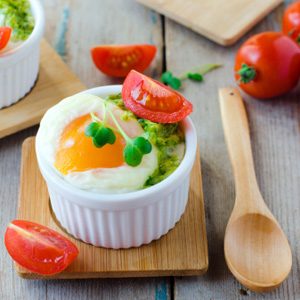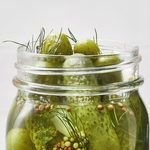Healthy Breakfast Ideas
Breakfast is often referred to as the most important meal of the day. But a doughnut or oversized muffin won’t do it. The key is to choose energy-enhancing, health-invigorating foods. That’s what we’ll focus on in the tips ahead.

Why Eat Breakfast
Not only is breakfast the first food and drink your body has had in more than 8 hours, but studies find that what you eat for breakfast influences what you eat the rest of the day. Additionally, people who eat breakfast are significantly less likely to be obese and have diabetes than those who don’t.
Portions
Be consistent with your portions. For most people, a perfect breakfast has three components: one serving of a whole grain carbohydrate, one serving of a dairy or high-calcium food, and one serving of fruit.
Together, that would add up to roughly 300 calories. A high-protein serving (i.e., a meat or an egg) is unnecessary but certainly acceptable, as long as it doesn’t add too much fat or calories to the mix. Here are a few winning combinations, based on this formula:
- A bowl of high-fiber, multigrain cereal, lots of strawberries, and low-fat milk on top.
- A granola bar, an apple, and a cold glass of milk.
- A cup of nonfat yogurt, fresh blueberries mixed in, and a slice of whole wheat toast with a fruit spread on top.
- A mini whole wheat bagel, spread lightly with cream cheese and jam; a peach; and a cup of yogurt.
- A scrambled egg, a whole wheat roll, fresh fruit salad, and a cup of low-fat milk.
- A low-fat muffin, a wedge of cantaloupe, and a cup of latte made with skim milk.
Cereal Alternatives
Love cereal but don’t appreciate the carbs and calories that come with it? Have a bowl of sweetened brown rice. Consider it a takeoff on prepared cereal. Brown rice is full of energy-providing B vitamins, as well as a great source of filling fiber.
Cook the rice the night before, then in the morning, put it in a bowl with a spoonful of honey, a handful of raisins, a cut-up apple, and a sprinkle of cinnamon for a unique yet delicious treat. Don’t like rice? Try any of the cooking grains: barley, rye, red wheat, oats, buckwheat, quinoa, or millet.
Breakfast Beverage
You may love coffee, but it’s the other breakfast drinks, such as fruit smoothies, that provide you with important vitamins. Simply whirl a cup of strawberries and a banana in the blender, add a scoop of protein powder and a cup of crushed ice, and you’ve got a healthy, on-the-go breakfast filled with antioxidants.
Toss in a cup of plain yogurt, and you’ve just added a bone-strengthening dose of calcium. An added bonus: You’ve just crossed three of your daily fruit servings off the list.
Go Organic
Use organic eggs. They’re not much more expensive than regular eggs but are much higher in all-important omega-3 fatty acids, shown to benefit everything from your mental health (reducing risk of depression) to your heart health (reducing risk of atherosclerosis and atrial fibrillation), says Fred Pescatore, M.D., author of The Hamptons Diet and a physician at Partners in Integrative Medicine in New York City.
While you’re at it, pick up some organic milk, yogurt and bread too. This way, you can enjoy a healthy breakfast, naturally.
A New Spin on Brunch
Have lunch for breakfast! Instead of butter or cream cheese, top your morning (whole-wheat) toast with 2 tablespoons tuna prepared with low-fat mayonnaise. The tuna is a great source of omega-3 fatty acids and an excellent source of energy-boosting protein. For the same healthy boost with a bit of variety, try lox or canned or smoked salmon.
Vitamins
Lastly, it’s important to add a vitamin to your morning meal. Take any and all supplements with breakfast, suggests nutrition expert Shari Lieberman, Ph.D., author of The Real Vitamin & Mineral Book. Taking supplements with food reduces the chance they’ll upset your stomach, and improves the absorption of minerals.



